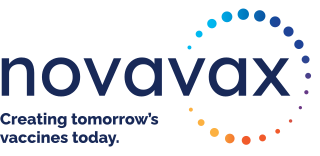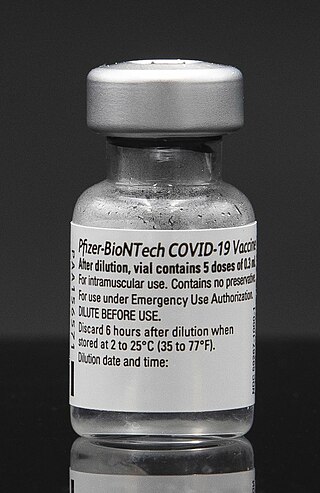Related Research Articles

Polio eradication, the goal of permanent global cessation of circulation of the poliovirus and hence elimination of the poliomyelitis (polio) it causes, is the aim of a multinational public health effort begun in 1988, led by the World Health Organization (WHO), the United Nations Children's Fund (UNICEF) and the Rotary Foundation. These organizations, along with the U.S. Centers for Disease Control and Prevention (CDC) and The Gates Foundation, have spearheaded the campaign through the Global Polio Eradication Initiative (GPEI). Successful eradication of infectious diseases has been achieved twice before, with smallpox in humans and rinderpest in ruminants.

Mona Nemer, is a Lebanese-Canadian scientist specializing in molecular genetics and cardiac regeneration. She was formerly a professor of pharmacology at the University of Montreal and the Director of the Cardiac Development Research Unit at the Institut de recherches cliniques de Montréal (IRCM) where she held a Tier 1 Canada Research Chair in Cardiovascular Cell Differentiation. She is a professor of biochemistry at the University of Ottawa's Faculty of Medicine, and also served as Vice-President, Research at the University of Ottawa from 2006 to 2017.

Mel Krajden is a Canadian physician who is a professor of pathology and ;aboratory medicine at the University of British Columbia in Vancouver, British Columbia. He is the medical director of the BCCDC Public Health Laboratory. Krajden obtained his BSc, MD, and FRCPC at McGill University, followed by a fellowship in Infectious Diseases at Stanford University. He is also the medical director of the Public Health Laboratory at the British Columbia Centre for Disease Control. His research focuses on the prevention and care of hepatitis, human papillomavirus, and human immunodeficiency virus.

Novavax, Inc. is an American biotechnology company based in Gaithersburg, Maryland, that develops vaccines to counter serious infectious diseases. Prior to 2020, company scientists developed experimental vaccines for influenza and respiratory syncytial virus (RSV), as well as Ebola and other emerging infectious diseases. During 2020, the company redirected its efforts to focus on development and approval of its NVX-CoV2373 vaccine for COVID-19.
The Health Protection Surveillance Centre (HPSC) is part of Ireland's Health Service Executive.

The COVID-19 pandemic in Canada is part of the ongoing worldwide pandemic of coronavirus disease 2019. It is caused by severe acute respiratory syndrome coronavirus 2. Most cases over the course of the pandemic have been in Ontario, Quebec, British Columbia and Alberta. Confirmed cases have been reported in all of Canada's provinces and territories.

COVID-19 surveillance involves monitoring the spread of the coronavirus disease in order to establish the patterns of disease progression. The World Health Organization (WHO) recommends active surveillance, with focus of case finding, testing and contact tracing in all transmission scenarios. COVID-19 surveillance is expected to monitor epidemiological trends, rapidly detect new cases, and based on this information, provide epidemiological information to conduct risk assessment and guide disease preparedness.
Allison Joan McGeer is a Canadian infectious disease specialist in the Sinai Health System, and a professor in the Department of Laboratory Medicine and Pathobiology at the University of Toronto. She also appointed at the Dalla Lana School of Public Health and a Senior Clinician Scientist at the Lunenfeld-Tanenbaum Research Institute, and is a partner of the National Collaborating Centre for Infectious Diseases. McGeer has led investigations into the severe acute respiratory syndrome outbreak in Toronto and worked alongside Donald Low. During the COVID-19 pandemic, McGeer has studied how SARS-CoV-2 survives in the air and has served on several provincial committees advising aspects of the Government of Ontario's pandemic response.
Eleanor N. Fish is a Canadian immunologist who is a Professor of Immunology at the University of Toronto. Her research considers how cytokines and chemokines interact with receptors in cells and tissue. During the COVID-19 pandemic, Fish tested interferon-alpha as a treatment for coronavirus disease.

The Great Barrington Declaration is an open letter published in October 2020 in response to the COVID-19 pandemic and lockdowns. It claimed harmful COVID-19 lockdowns could be avoided via the fringe notion of "focused protection", by which those most at risk of dying from an infection could purportedly be kept safe while society otherwise took no steps to prevent infection. The envisaged result was herd immunity within three months, as SARS-CoV-2 swept through the population.

The Pfizer–BioNTech COVID-19 vaccine, sold under the brand name Comirnaty, is an mRNA-based COVID-19 vaccine developed by the German biotechnology company BioNTech. For its development, BioNTech collaborated with the American company Pfizer to carry out clinical trials, logistics, and manufacturing. It is authorized for use in humans to provide protection against COVID-19, caused by infection with the SARS-CoV-2 virus. The vaccine is given by intramuscular injection. It is composed of nucleoside-modified mRNA (modRNA) that encodes a mutated form of the full-length spike protein of SARS-CoV-2, which is encapsulated in lipid nanoparticles. Initial guidance recommended a two-dose regimen, given 21 days apart; this interval was subsequently extended to up to 42 days in the United States, and up to four months in Canada.

The COVID-19 pandemic has created and popularized many terms relating to disease and videoconferencing.

The Beta variant, (B.1.351), was a variant of SARS-CoV-2, the virus that causes COVID-19. One of several SARS-CoV-2 variants initially believed to be of particular importance, it was first detected in the Nelson Mandela Bay metropolitan area of the Eastern Cape province of South Africa in October 2020, which was reported by the country's health department on 18 December 2020. Phylogeographic analysis suggests this variant emerged in the Nelson Mandela Bay area in July or August 2020.
Catherine Anita Hankins is a Canadian epidemiologist. Hankins was the Deputy Medical Officer of Health at Calgary Health Services before accepting a faculty position at McGill University.

CoVLP was a COVID-19 vaccine developed by Medicago in Canada and GlaxoSmithKline (GSK). The product and Medicago, Inc. were owned by Mitsubishi who terminated the company and program in February 2023 due to high international market competition for COVID-19 vaccines.
The following is a timeline of the COVID-19 pandemic in Ghana during 2021-2022.

The National COVID-19 Immunisation Programme, abbreviated as NIP or PICK, was a national vaccination campaign implemented by the Malaysian government to curb the spread of coronavirus disease 2019 (COVID-19) and to end the COVID-19 pandemic in Malaysia by achieving the highest possible immunisation rate among its citizens and non-citizens residing in the country. It was the largest immunisation programme in the history of Malaysia and was administered by the Special Committee for Ensuring Access to COVID-19 Vaccine Supply (JKJAV) starting in early 2021.
The ImmunityBio COVID-19 vaccine, codenamed hAd5, is a non replicating viral vector COVID-19 vaccine developed by the United States-based pharmaceutical company ImmunityBio.

Vabiotech COVID-19 vaccine is a COVID-19 vaccine candidate developed by the Vaccine and Biological Production Company No. 1 (Vabiotech) in Vietnam.

Caroline Quach-Thanh is a Canadian pediatric microbiologist, epidemiologist and infectious diseases specialist. She is a professor in the Université de Montréal Faculty of Medicine and Medical Lead in the Infection Prevention and Control Unit at CHU Sainte-Justine. She served as the Chair of the National Advisory Committee on Immunization (NACI) before and during the COVID-19 pandemic, and oversaw the development of usage guidelines for COVID-19 vaccines in Canada.
References
- 1 2 Zimonjic, Peter; Kapelos, Vassy (23 April 2020). "WHO set pandemic response back by 2-3 weeks, says doctor on new federal task force". CBC News . Archived from the original on 2020-04-24.
- 1 2 "Prime Minister announces new support for COVID-19 medical research and vaccine development". Office of the Prime Minister of Canada . 23 April 2020. Archived from the original on 30 April 2020.
- ↑ "Canada launches serological testing initiative to help manage COVID-19". McGill University. 23 April 2020. Archived from the original on 1 May 2020.
- ↑ "Vaccine Surveillance Reference Group (VSRG)". COVID-19 Immunity Task Force. Archived from the original on 2021-04-28. Retrieved 2023-04-23.
- ↑ Labonne, Simon. "Leadership Group". COVID-19 Immunity Task Force. Archived from the original on 2022-03-23. Retrieved 2022-03-31.
- ↑ Naylor, David (May 2, 2020). "@CDavidNaylor on X: '🇨🇦 COVID-19 Immunity Task Force leadership group. Privileged to work with these talented & dedicated 🇨🇦 experts. See list below.'". X . Archived from the original on May 8, 2020.